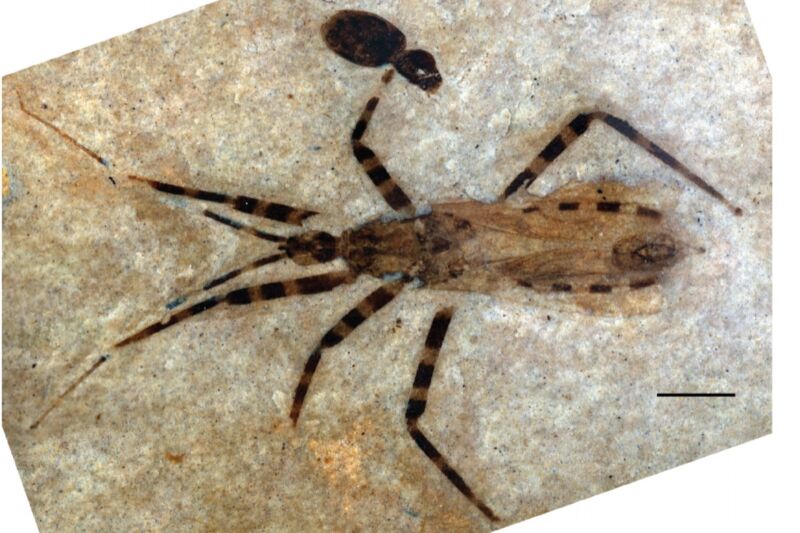Rare 50 million-year-old fossilized bug flashes its penis for posterity

Enlarge / This poor fossilized assassin bug's tiny penis is being closely scrutinized by paleontologists who consider the find "a rare treat"-because it has been so extraordinarily preserved. (credit: Daniel R. Swanson/Sam W. Heads)
A rare fossilized assassin bug is causing a bit of a stir in entomology circles, because it is so remarkably well-preserved that one can distinctly pick out its penis. The specimen dates back 50 million years to the Eocene epoch, meaning this particular taxonomic group may be twice as old as scientists previously assumed. The University of Illinois, Urbana-Champaign (UIUC) researchers who conducted the analysis described their unusual find in a new paper published in the Journal of Paleontology.
"Getting a complete fossilized insect is really rare, but getting a fossil of an insect from this long ago, that has this much detail, is pretty amazing and exciting," Gwen Pearson of Purdue University's Department of Entomology, who is not a co-author on the paper, told Ars. Assassin bugs (part of the Reduviidae family, of the order Hemiptera) are predators favored by gardeners because they eat pests. The mouth is distinctly shaped like a straw, the better to poke into the body of its prey, like a juice box, and slurp out the guts.
But of course, it's the preserved genitalia that make this fossilized specimen so exciting. The genitalia are contained within a shell-Ruth Schuster, writing at Haaretz, described the penis (technically its "pygophore") of the assassin bug as a "chitinous codpiece"-which is why it's difficult to tell whether a given insect specimen is male or female. In addition to the pygophore and the telltale stripes on the legs, the new fossil also distinctly shows the "basal plate," a structure shaped like a stirrup that supports the penis.
Read 13 remaining paragraphs | Comments